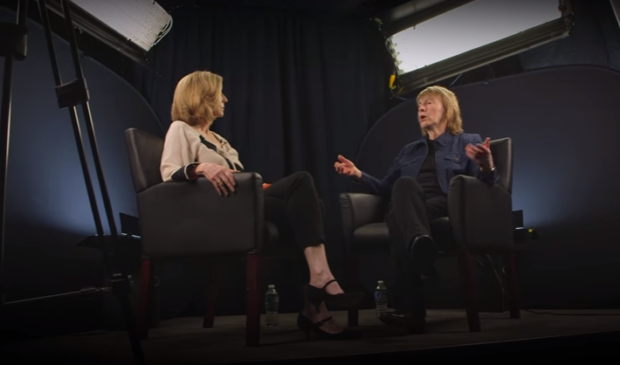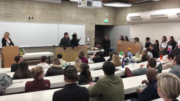I find that the Heatstreet website is attracting more and more of my attention these days due to the interesting slant that they put on things and also the thought provoking writers and speakers that they host and promote.
This is a stunning article that features one of my favourite feminists Christina Hoff-Sommers speaking to Professor Camile Paglia of the University of the Arts about the dire state of today’s ‘third wave feminism’.
Please look at the videos and the transcript on the Heatstreet website as it’s a real eye-opener for those who believe in freedom of speech and also believe in academic freedom.
Here’s a short excerpt from the transcript, a piece that really caught my eye.
CHS: I gave a lecture at Oberlin and Georgetown a year ago, and they organized safe spaces for students who were “triggered” — a Philosophy professor was going to induce PTSD. What they objected to is that I might have some ideas that invalidate their experience.
CP: They’re institutionalizing neurosis.
CHS: It’s absolutely true!
CP: That’s what they’re doing. It’s absolute madness.
CHS: And have you heard the phase, the ‘fashion on campus’ now is called, ‘intersectional feminism’, and it’s supposedly very progressive and it’s going to take feminism to a place where it is taking into account women with multiply marginalized identities, on and on. But all of the women — the practitioner — seem to meet at the intersection of propaganda and neurosis and rage. And they’re bullying people. They’re using feminism now to tell men: “check your privilege.”
CP: Well I think it’s a good idea that feminism be critiqued by class issues, because that’s what I’ve said all along is that what is being demanded is a kind of bourgeois protection — a white middle class girl style. The perfect little girl emerging from her parents living room wants the same kind of protection on the college campus.
I’ve always felt that there was a bourgeois element in this that was never sufficiently critiqued. What I see on the street now are Latino women, African American women who may be middle class but have working class background as I did.
I’m from an Italian immigrant family who are able to handle themselves on the street, are able to speak back, don’t mind having strong voices, and strong gestures.
CHS: Well intersectionality started with those women — it was a group of African American women who were just fed up with the women’s movement attending only to the needs of highly professional middle-class and upper middle-class women. But has been appropriated by mostly middle-class white women on campus.
“Safe space” was actually a word that was used in early black feminism by Black women and Hispanic women, as places where they could just talk to each other, weren’t censored and where they could speak their minds. But now it means a place where, if there is a debate that upsets young women at Brown University, for example, they flee to a safe space. It was described in The New York Times by Judith Shultevitz: they had coloring books, crayons, tapes of frolicking puppies, bubbles… I mean: is this what feminism has come to?
CP: That’s what education has come to. Absolutely. The definition down is “therapeutic resorts.”
It’s well worth watching the conversation between Professor Hoff-Sommers and Professor Paglia to get an insight on the culture war that has been won by the Left on American campuses and which threatens the wider society.





